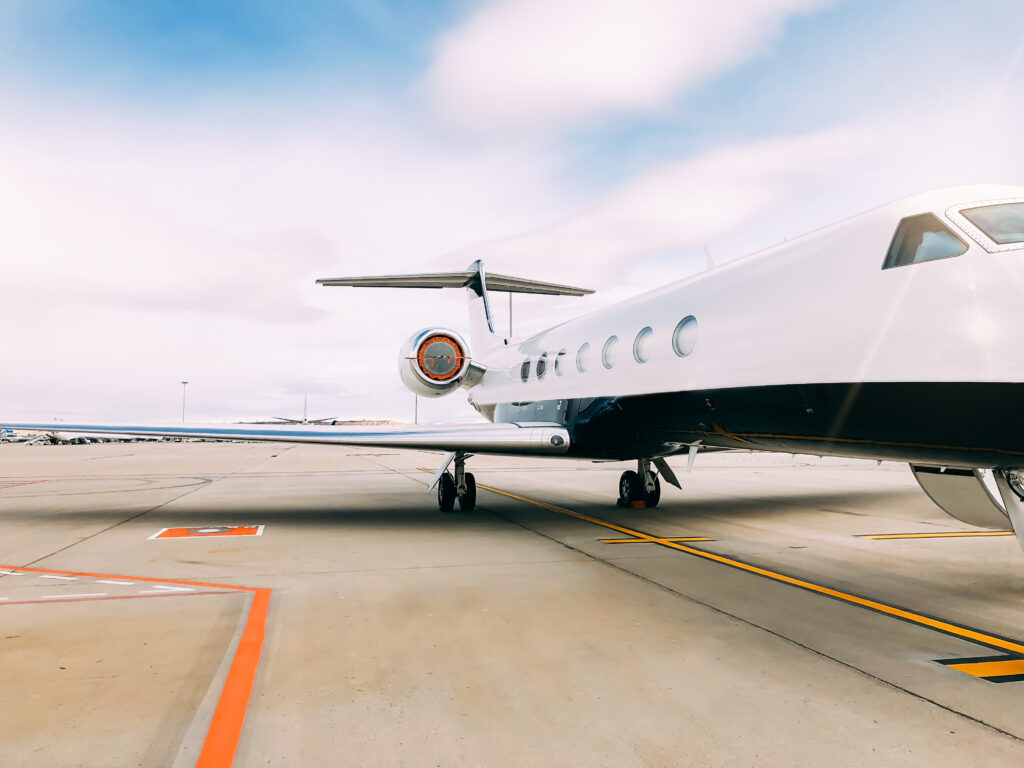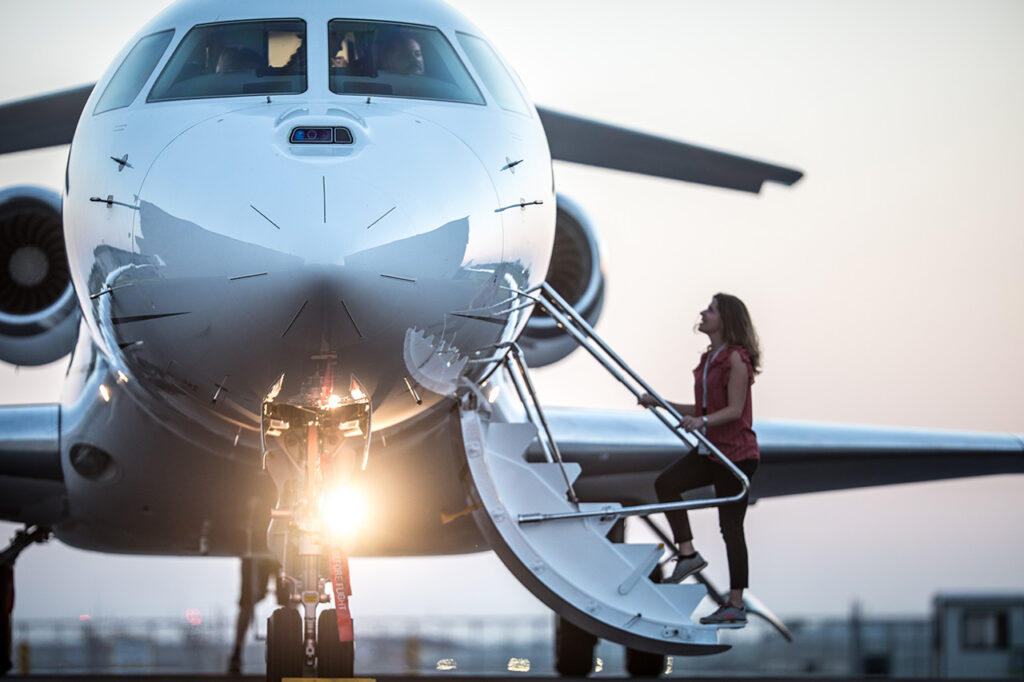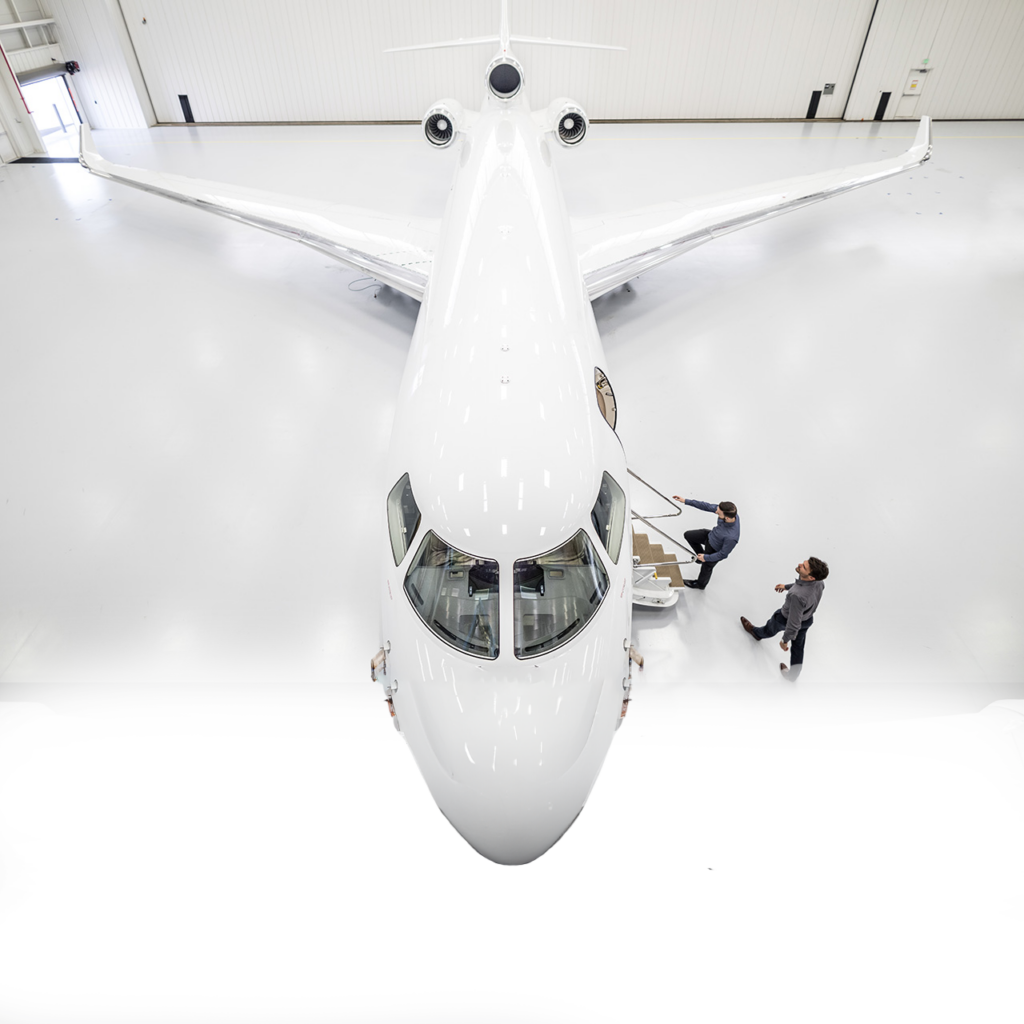How can you avoid overpaying for a private charter jet, and what are some of the other common pitfalls to avoid when booking your flight? Gerrard Cowan asks a selection of industry insiders…
There are a variety of mistakes less experienced private aircraft charter customers can make when it comes to booking their flights, some of which can prove unnecessarily costly.
For example, Robert Plhak, CEO of VOO Flights fairly frequently sees charter customers opt for the wrong aircraft category. They may choose an aircraft that’s too big for the mission, or pick a newer aircraft than they really require which could needlessly push the price up.
Other errors charter users make is to accept quotes without making sufficient comparisons, without receiving enough bids from brokers/operators, or without enough bid information in what can be a non-transparent, confusing market, Plhak adds.
All these problems can be addressed by charter customers doing proper research, taking the time to learn the charter market, and getting a feel for how it all works. Charter price calculations are highly individualized, Plhak illustrates. They depend on the operator’s sales department, management contracts with the aircraft’s owner, fleet utilization, and more.
“Clients should seek to compare the available options and various offers before they make a charter booking,” he reiterates. “Generally, charter brokers are ‘multipliers’ who can help a customer greatly – a good broker advocates for the client – but they must also make money, and they do so whenever they can.”

For those who have consistent, predictable charter needs it could help to establish a relationship with one operator or broker, George Galanopoulos, CEO of Luxaviation UK suggests. “This can enable the charterer an advantage in getting rates that aren’t widely advertised.”
Plhak agrees there are potential benefits to maintaining a fixed ‘partner’ operator who knows the client well. “If the client shops around they might get good deals, but they will always be seen as a new customer,” he says. But this won’t work for everyone, he highlights.

For example, charter customers “should avoid using one operator for all their short and long-haul trips around the world,” since “that operator may be suitable for a short- or long-haul flight from your local airport, but there may be others who are better options elsewhere.”
“Many of our aircraft owners and charterers use small- to mid-size aircraft for short- and medium-haul destinations,” Galanopoulos illustrates, “but [for those on smaller budgets] they fly business/first class for long-haul,” he reveals.
Similarly, Doug Gollan, President & Editor-in-Chief at Private Jet Card Comparisons, emphasises the benefits of building a long-term partnership with a charter broker. Sometimes charter is pitched as “the Uber of private jets”, he says, but this does a disservice to the complicated nature of the work, “from making sure you are getting an aircraft that meets your needs – enough baggage space for skis, etc. – to ensuring the trip goes off without a hitch.”
For those who do place the majority of their custom with a particular charter broker, Plhak advises that from time to time it is worth comparing offers from other brokers to ensure that “the favored broker hasn’t become lazy, and that it continues to do its best to get the best deals on the market for you.”
Essentially, everything circles back to charter users investing the time to know the market, the brokers, and the operators they plan to use.
Private Jet Charter: Poor Planning, Higher Cost
Galanopoulos reiterates that choosing a larger-than-needed aircraft, or failing to leverage empty-leg flights can drive up expenses for private charter customers. In fact, he says, many private charter users overpay due to insufficient forward planning. This results in last-minute bookings, inefficient aircraft selection, or unnecessary repositioning fees.
And some users also overlook airport choices, which is especially important because certain airports have significantly higher landing and handling fees, whereas nearby alternatives could offer cost savings at minimal inconvenience.
Fuel surcharges and region-specific handling fees can further inflate costs, Galanopoulos highlights. “To avoid overpaying, customers should plan ahead, comparing quotes from multiple providers and asking for a full breakdown of costs.”
And understanding key pricing factors – such as hourly rates, positioning fees, peak-day surcharges and off-peak travel periods – can help charter users make more informed decisions. “For travelers with more flexible schedules, repositioning flights or empty-leg opportunities can offer significant savings,” Galanopoulos suggests.
Plhak agrees, adding that those whose travel need is less pressing should try to avoid high seasons where possible, and should try to book empty legs where available.
Shop Around Smartly for Your Private Jet Charter…
According to Galanopoulos, “Luxaviation has seen many cases where it receives the same request from several brokers that are clearly acting for the same end user. He suggests calling a maximum of two operators or brokers. “Shopping around is okay, but sometimes it confuses the market and doesn’t always result in better prices,” he highlights.
“Also, charter customers need to keep in mind that the lowest price is not always the best. The reputation of the operator, safety, and having a backup plan in case the aircraft develops a last-minute technical issue are other important factors for charterers to consider.”
Cutting Jet Charter Costs: Flexibility is Your Friend
Troy Hagan, Senior Vice President of Sales at FlyExclusive, advises his clients to build in as much flexibility as possible if they truly wish to cut costs. That could mean negotiating away guaranteed availability (in the case of a maintenance issue for instance), which can result in a premium cost to ensure aircraft and crew availability.
“That is where you can really get somebody to effectively get their costs down, because you’re eliminating the risk for that operator to maintain the aircraft, provide staff, hangar bills – you name it,” he outlines. “It all just adds up.”

The benefits of flexibility also extend to the days you fly. For example, Tuesday or Wednesday are typically less busy to fly than on a Friday afternoon, Hagan adds. “Everybody else is flying then. That’s when the demand becomes the most pressured, whether for commercial or private flying.” That is where knowledge is key. “Getting that information is half the battle,” he says, adding that clients should not hesitate to ask any question on costs, etc.
Coming at flexibility from a different angle, Jan Kralik, CEO of ABS Jets, says that in addition to choosing operators/brokers with history and experience, charter users should also ensure they offer flexible customer support, ideally operating 24/7. There are several reasons for this, he reckons, such as limited availability to those who may need to make a late booking during a peak time. “Having a reliable partner is definitely an advantage,” he says.
Kralik warns that there are many so-called ‘charter brokers’ who lack the necessary experience of how to save customers unnecessary fees, emphasizing the need for charter users to conduct research and compare prices, booking well in advance with minimum schedule changes.
Picking the Charter Option That Makes Most Sense
There are different options available to charter users, depending on their need, and choosing the right one can prove more cost effective for the user it’s tailored for. Charterers can book private charter flights on an ad hoc basis, or they could opt for a jet card – essentially purchasing a block of charter hours with an operator, or depositing a sum that is reduced as the user flies. “A jet card makes sense for those who travel frequently and do not know their program in advance,” Kralik notes. “On the other hand, ad hoc charter booking is suitable for travelers who fly more occasionally.”
Gollan says that if a charterer wants a specific aircraft vintage, type or configuration, they are generally better off booking ad hoc. This also applies if “you want the aircraft repositioned the night before, you want to keep it with you while you are at your meeting, and/or you are doing same day or next day round-trips where the operator can use the same aircraft and crew,” he adds.
However, if you need to book 24 to 96 hours before departure, or foresee the potential to change your plans in the last 24 to 120 hours, jet cards often provide more flexibility,” Gollan continues. “Along with fixed pricing, you can better budget for travel expenses [with a jet card].” And jet cards can be better value on a range of routes, while many also include recovery flights at no extra expense, he adds, whereas on-demand charter requires a requote.
Essentially, Nick Copley, President of Sherpa Report says, jet cards can provide peace of mind with their fixed-rate pricing, rather than the dynamic, market-driven pricing for [ad hoc] charter. What’s more, some cards keep the same rates even on peak days, though it will be necessary to plan further ahead to receive those rates.
In Summary…
As in any marketplace, it’s always advisable to get a few quotes, including asking for those to be fully inclusive. “Many operators will highlight a cost per hour for a given plane, but this is just a starting point,” Copley says. “An informed customer will ask if the numbers include all fuel costs, all landing and ramp fees, any overnight fees for the crew, de-icing fees, catering costs, additional fees related to international flights and more.”
And to ensure value, customers should vet operators for safety certifications (such as their ARGUS or Wyvern ratings) and clarify cancellation policies and hidden fees, Galanopoulos adds. “Working with reputable brokers, checking customer reviews, and ensuring aircraft suitability for their needs will also help prevent overspending without sacrificing quality,” he concludes.
Adopted and published text – AvBuyer. Words: Gerrard Cowan.
Ivanna is a professional journalist and communications specialist; she channels her creative energy and passion for words to shape outstanding cross-media stories for VOO and the industry’s vibrant media. Ivanna holds a master’s degree in journalism and a professional development certificate in science communication.
- Private Air Charter: Are you Paying too Much?
- Optimizing Private Charter Price and Service
- The Empty Leg Evolution
- VOO | A Charter Marketplace BizAv: A Talk with CEO Robert Plhak by MixJet
- VOO Revolutionizes BizAv: A Q&A with CEO Robert Plhak by Business Airport International
- VOO’s Instant Booking Revolution: A Conversation with CEO Robert Plhak by EVA Magazine
- Outdated Systems in BizAv Charter Booking: VOO Comes to the Rescue
- The Challenge of Embracing Innovation in Business Aviation: A Conversation with Industry Experts
- Streamlining Quotes and Embracing Open Ecosystems for Efficiency in BizAv
- BizAv Seeks Efficiency Through Digital Transformation



